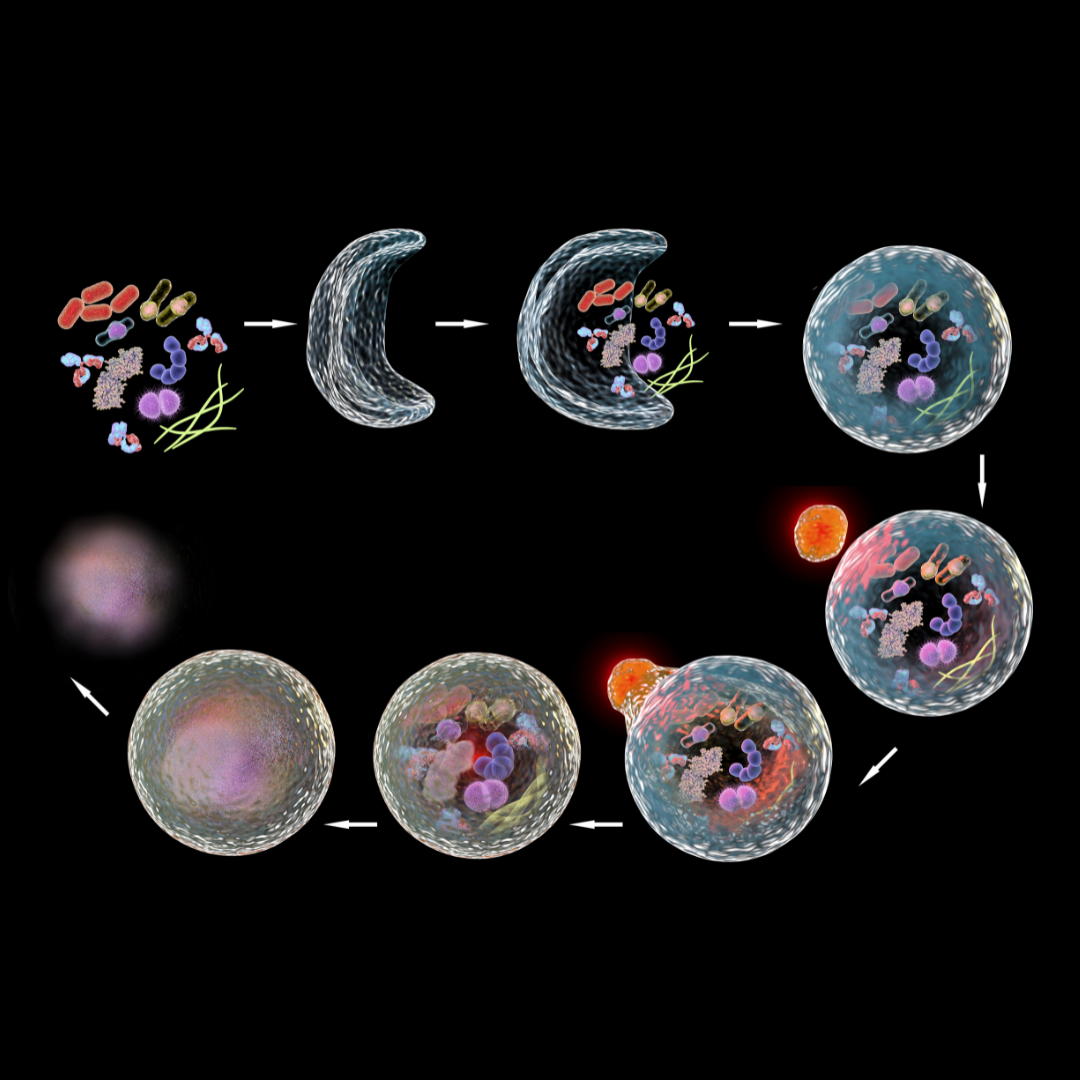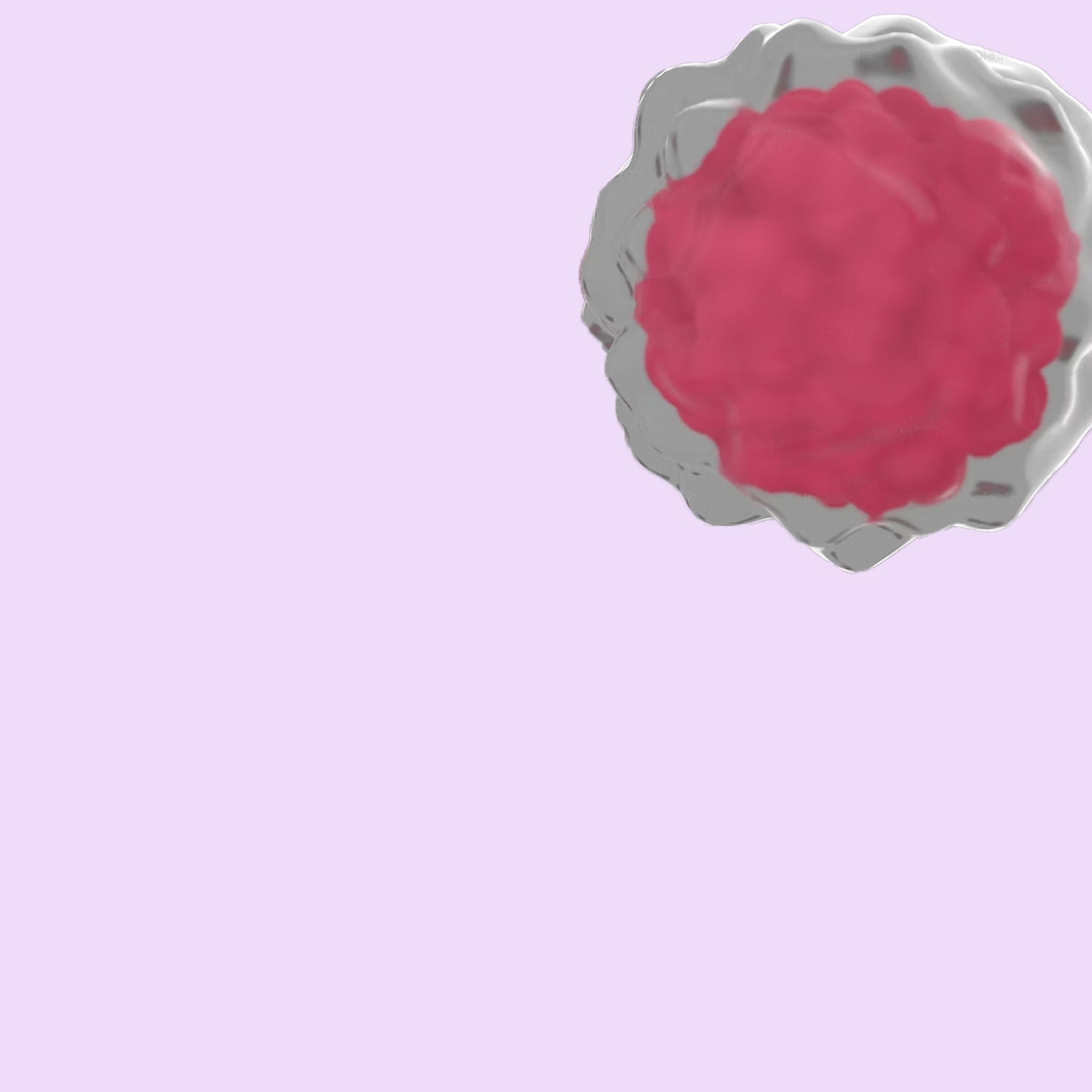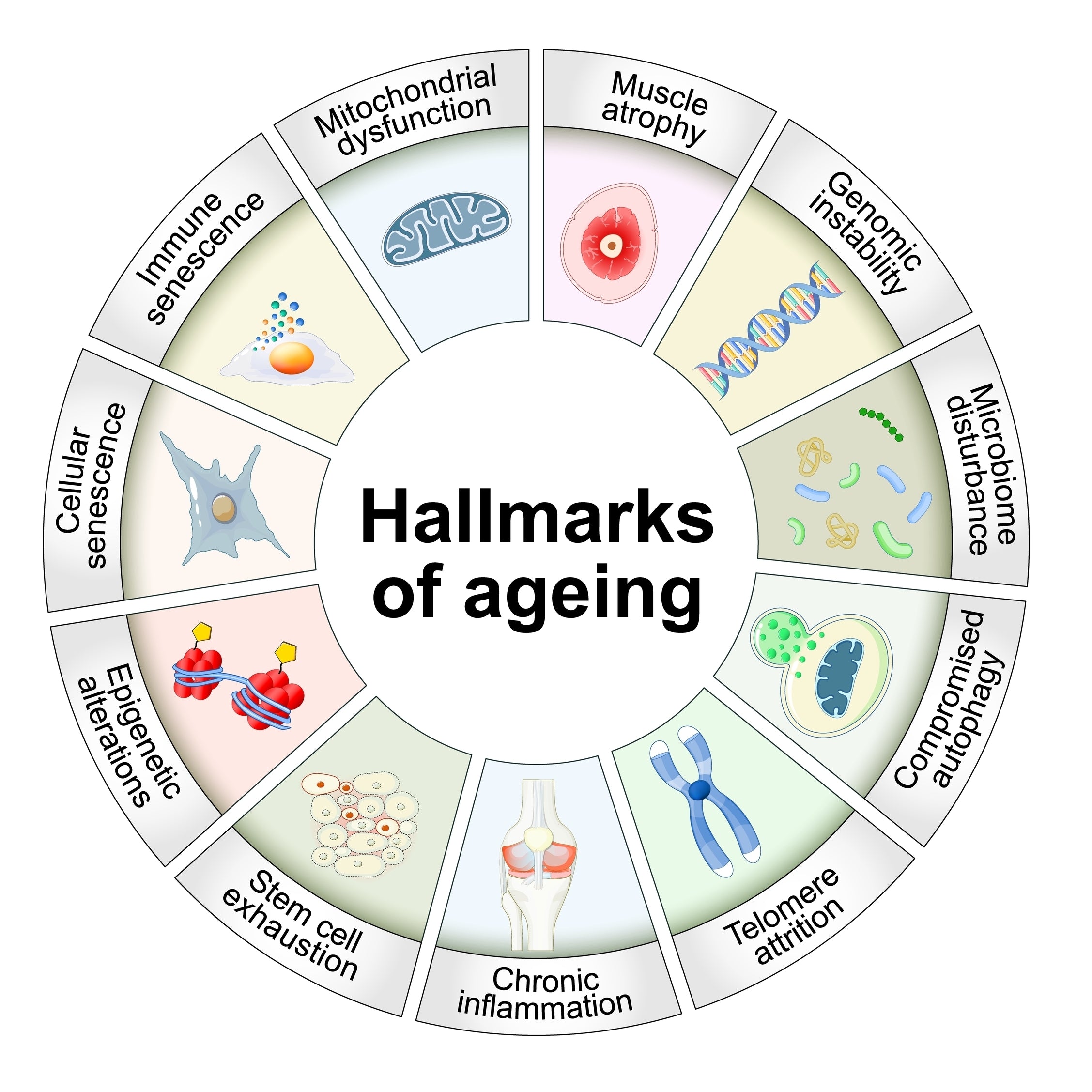What is Autophagy?

Autophagy Explained
Autophagy is the body's built-in "clean-up" and renewal process, sorting cellular components into "waste" for disposal and "recyclables" for reuse. Dysfunctional proteins and organelles are broken down for energy, while salvageable parts are repurposed to create fresh, healthy cells. In essence, autophagy removes damaged cells and supports regeneration.
Read our blog
Why is Autophagy Important?
Autophagy is essential for lifelong cellular health, preventing the build-up of proteins and organelles that can lead to cell dysfunction. In 2016, Japanese scientist Yoshinori Ohsumi won the Nobel Prize for uncovering its mechanism and its role in preventing age-related diseases like heart disease, Alzheimer’s, and weakened immunity. We are the only non-Japanese company collaborating with him and his team.

What are the Benefits of Autophagy?
Autophagy combats aging by clearing damaged cells and promoting regeneration, addressing key "Hallmarks of Aging" like mitochondrial dysfunction, inflammation, and stem cell exhaustion. It enhances metabolism, strengthens immunity, and supports brain and heart health while reducing disease risk. By preserving cellular function, autophagy boosts longevity, vitality, and overall well-being.

How Does Spermidine Activate Autophagy?
Spermidine activates autophagy by inhibiting key pathways that suppress autophagy, mimicking the effects of fasting without the need for dietary restrictions or extreme changes. Unlike intense exercise or prolonged fasting, which can be challenging and even stressful on the body, spermidine naturally supports autophagy at the cellular level without triggering excessive stress responses. Additionally, it provides ongoing benefits regardless of meal timing, ensuring continuous cellular cleanup and regeneration.

Spermidine and the "Hallmarks of Aging"
Moreover, spermidine targets multiple hallmarks of aging, including mitochondrial dysfunction, inflammation, and stem cell exhaustion, offering a comprehensive approach to longevity beyond just autophagy activation. Since it is a natural, food-derived compound, it is safe for long-term use and integrates easily into daily health routines, making it one of the most effective and accessible ways to support healthy aging.
Learn moreWhat Is Autophagy?: Interview with Nobel Prize Winning Scientist, Yoshinori Ohsumi
References
